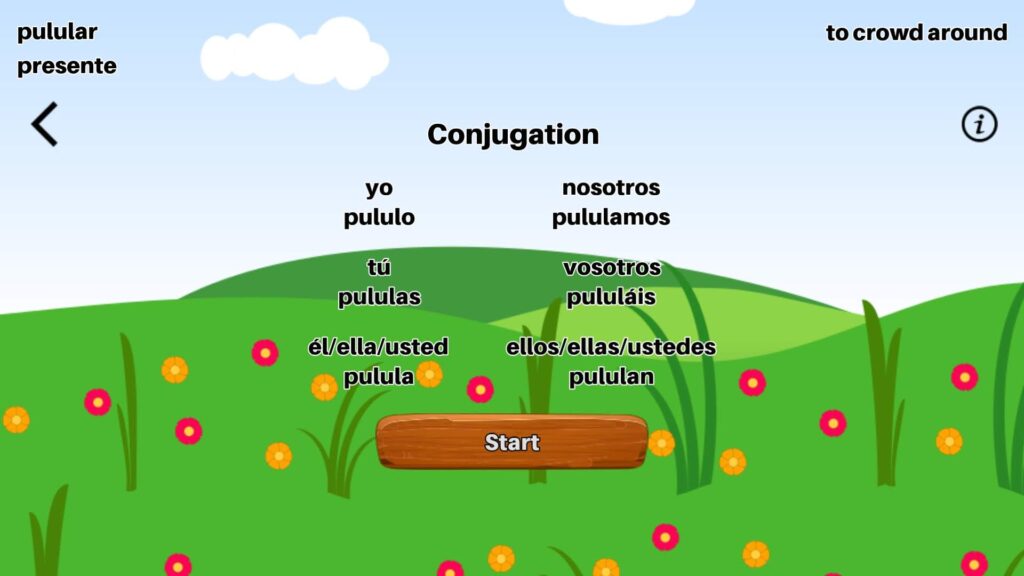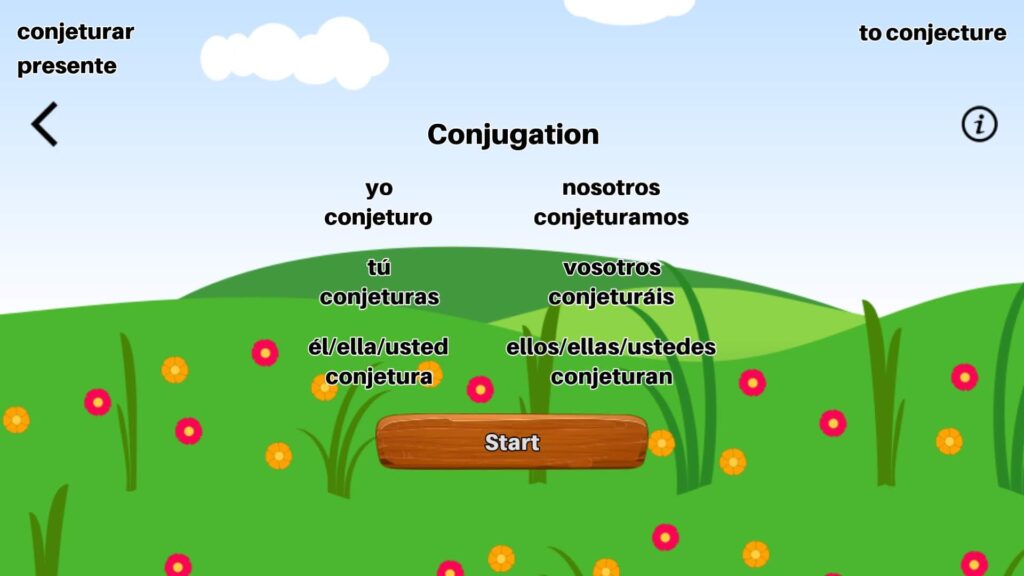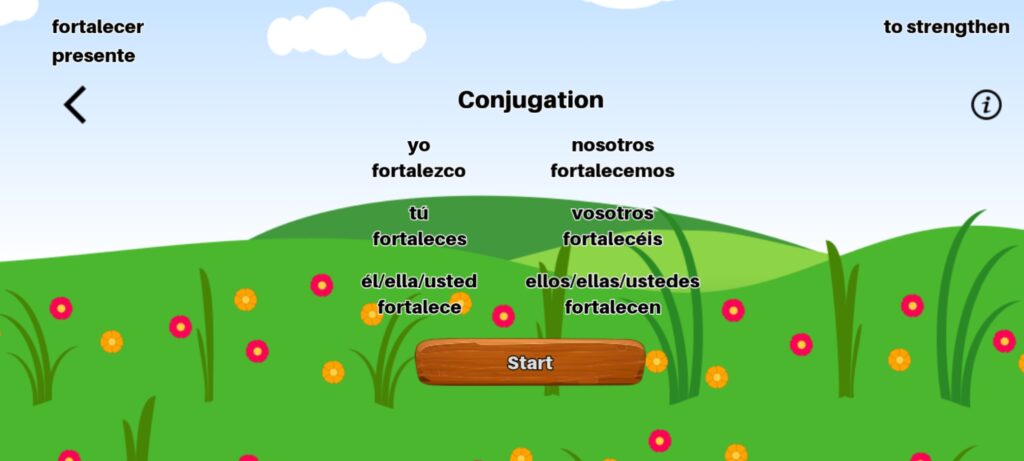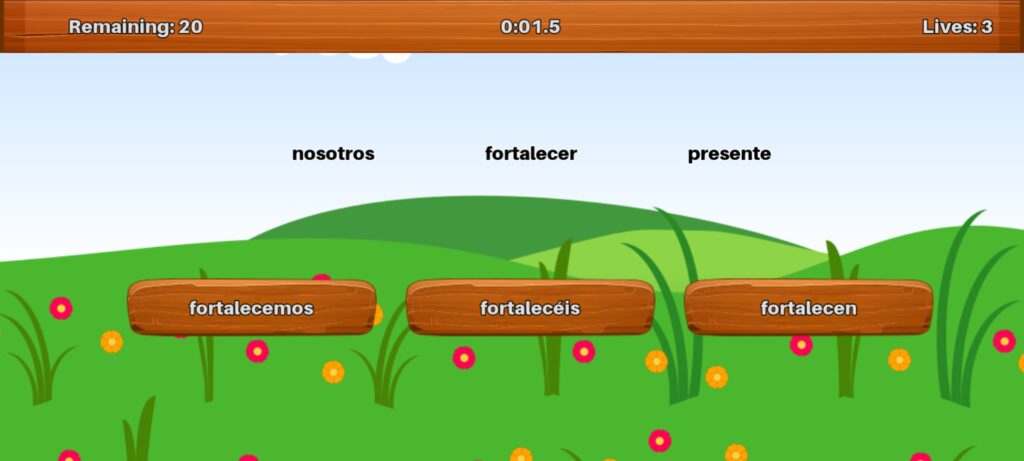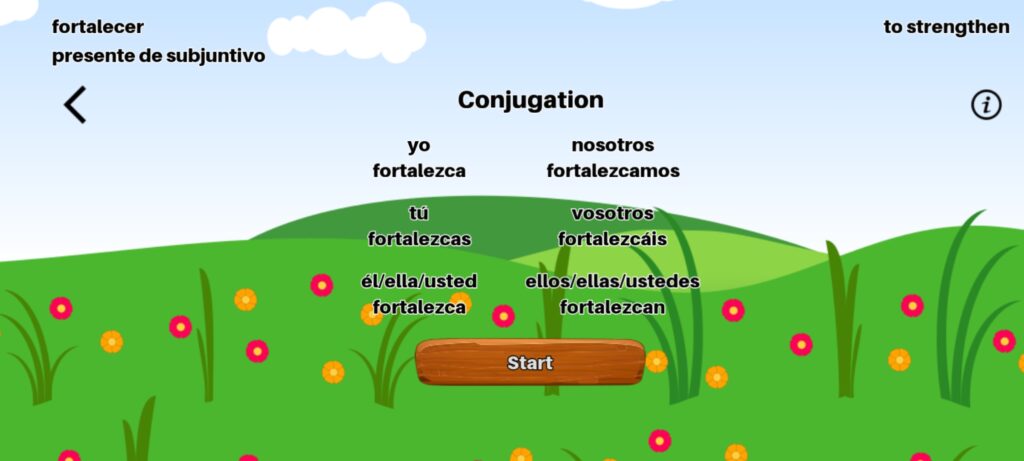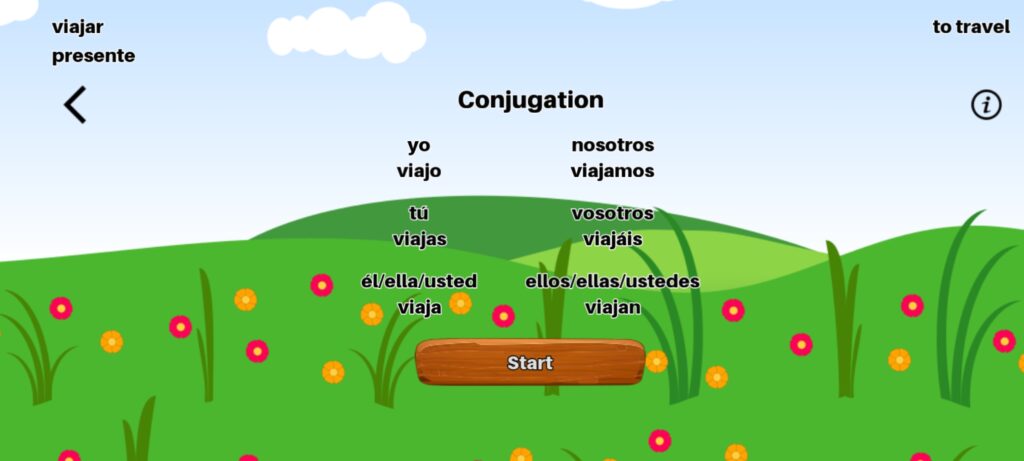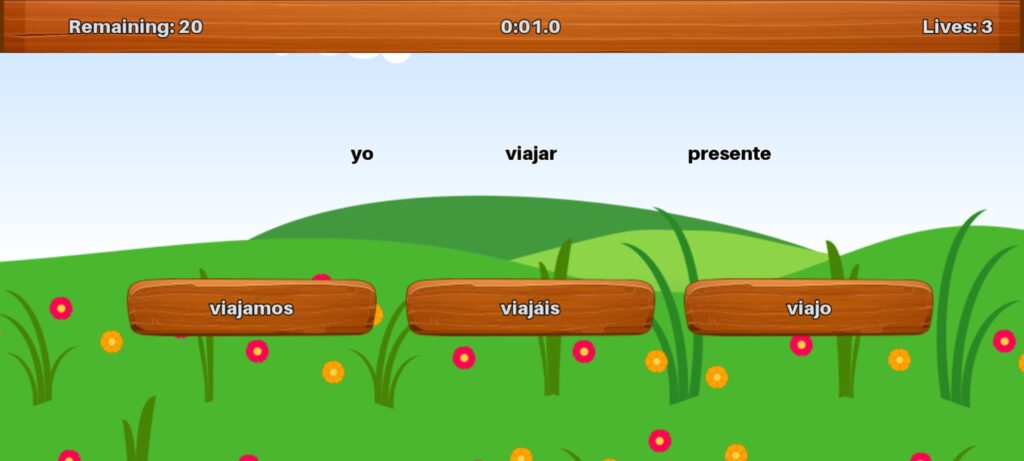Hola, Conjugation Champions!
Welcome to today’s insightful edition of your daily Spanish conjugation blog! Today’s verb is entreoír, which means “to half-hear.” Perfect for those moments when you catch snippets of a conversation but miss out on the juicy details. Let’s dive into its conjugation, uses, and some fun tips to master it.
Definition and Meaning
Entreoír: To half-hear, to hear partially.
Example: Solo pude entreoír la conversación desde el otro cuarto. (I could only half-hear the conversation from the other room.)
Present Tense Conjugation
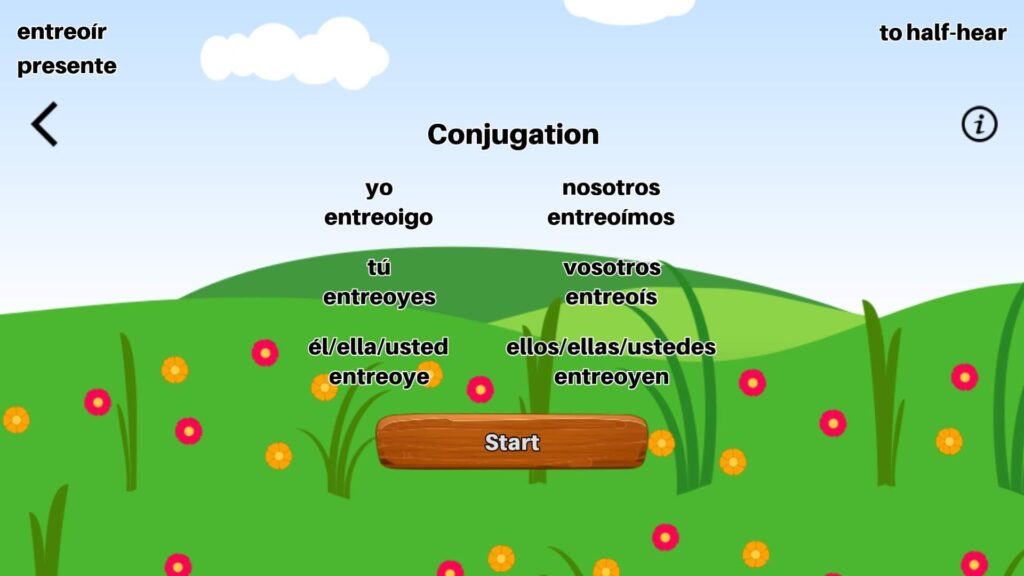
Usage Tips
- Gossip Snippets: Use “entreoír” when you catch parts of a conversation, especially in social settings where you might overhear gossip.
- Context Matters: Perfect for describing those moments when you’re not fully paying attention or are in a noisy environment.
- Pronunciation: Stress the “e” in the beginning: en-tre-O-ir.
Sentence Practice
- Present Tense: Entreoigo lo que dicen los vecinos. (I half-hear what the neighbors are saying.)
- Preterite Tense: Entreoí la noticia mientras pasaba por el pasillo. (I half-heard the news while walking down the hallway.)
- Imperfect Tense: Siempre entreoíamos las conversaciones en la cafetería. (We always half-heard the conversations in the cafeteria.)
Quiz of the Day
Translate the following sentences into Spanish using “entreoír”:
- I half-heard the announcement on the train.
- She could only half-hear the lecture from the back of the room.
- We used to half-hear the music from the next apartment.
(Answers at the bottom of this post!)
Fun Practice Exercise!
Try using “entreoír” in a sentence today or download our game to practice its conjugation:
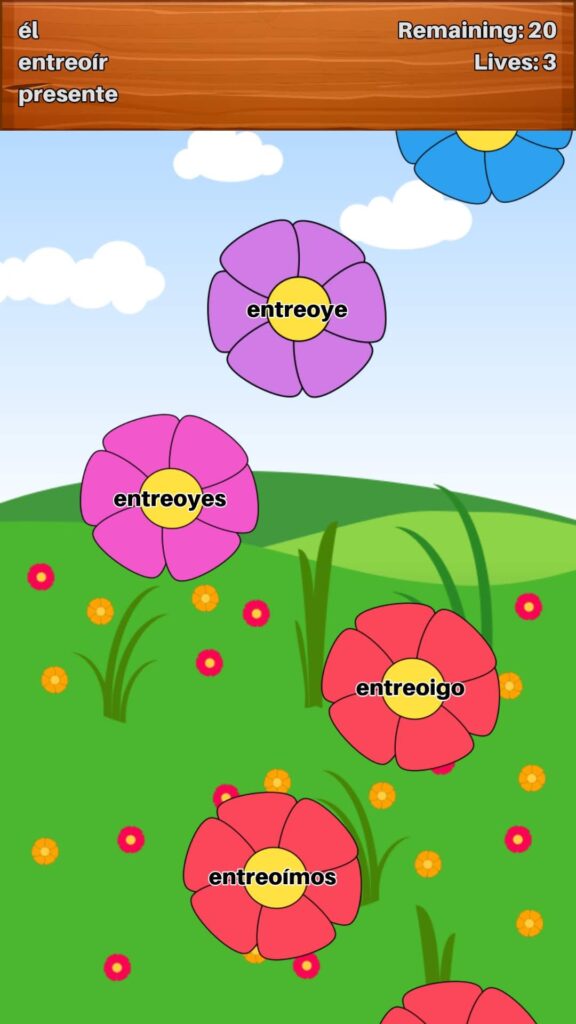
Keep half-hearing, keep learning, and keep refining those Spanish skills! Every verb you master brings you one step closer to fluency. ¡Hasta mañana!
Stay tuned for tomorrow’s verb and enjoy your day!
Saludos,
Daniela from the DOMA Games team
Answers to Quiz
- Entreoí el anuncio en el tren.
- Ella solo pudo entreoír la conferencia desde el fondo del aula.
- Solíamos entreoír la música del apartamento de al lado.





